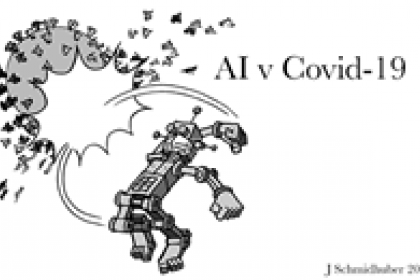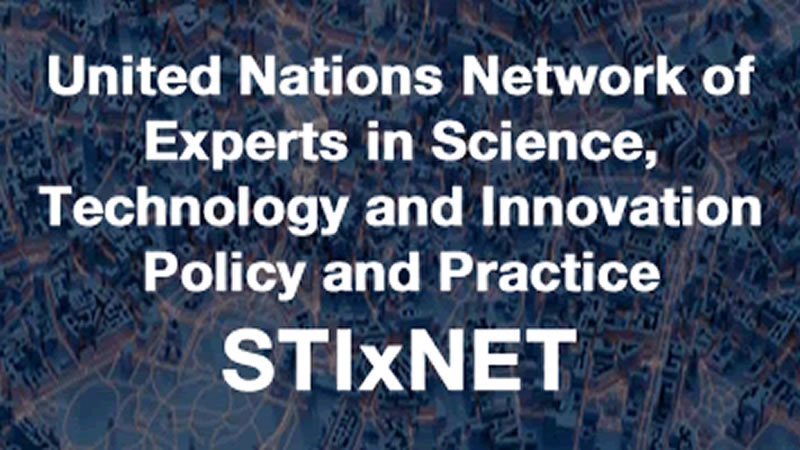
STIxNET is a network of Science, Technology and Innovation (STI) policy and practice experts. Its aim is to assist policymakers worldwide through enhanced peer-to-peer collaboration.
STIxNET will aim to provide an increasing diversity of expertise, thus improving the inter- and multi-disciplinary quality of policymaking in the STI domain.
STIxNET brings together years of experience and insight and practical experiences of what works and what does not in STI policy development and implementation and innovation practice.
This is doubly important given the challenges of the attainment of the SDGs, and the important role that technology needs to play in Agenda 2030.
Meet the Experts
Dr. Jean-Eric Aubert
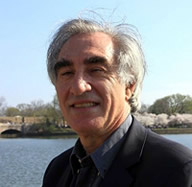
With career expertise in science, technology and innovation policy and with experience in countries of all development levels, gained as an international civil servant at OECD and the World Bank, Dr. Aubert consults for many international organizations and institutions.
Challenge: working in a country with innovation potential and subsequent possibilities for economic and social development, but being blocked by government inertia and rent seeking.
Solution: discovering and stimulating an organisation and group of people able to act sustainably as change-makers with a systemic perspective.
Dr. José LuiseSolleiro
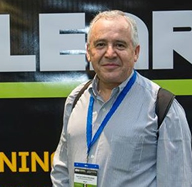
Industrial Engineer and PhD in technology management. Currently, he is senior researcher at the Institute of Applied Science and Technology of the National University of Mexico.
Challenge: most firms and managers in developing countries do not have enough knowledge on innovation management and technology transfer.
Solution: educate managers and to support their decision-making process with sound technical and strategic information.
Catherine Adeya(PhD)
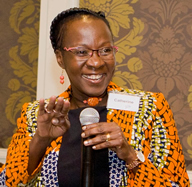
Results-driven Information Scientist with over 20 years experience in multidisciplinary environments, in the public and private sector. Expert in multilateral agency operations, excellent skills in research and policy development.
Challenge: the tension between the need for innovation and the pressure to maintain continuity, social order and stability, distrust in public and private institutions.
Solution: access to newer technologies to improve inclusion; policymakers need to be more engaged with academics, industry and civil society to support this.
Prof. Paul Trott
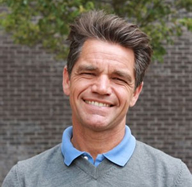
Professor of Innovation Management, University of Portsmouth, UK.
Challenge: innovation in high-tech industries is very different to innovation in low-tech industries.
Solution: low-tech industries innovation occurs within the manufacturing process.
Juana Rosa Kuramoto Huaman
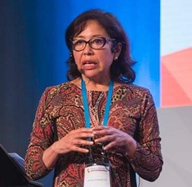
Policy specialist in innovation and territorial development.
Challenge: lack of policy instruments to promote local and territorial innovation.
Solution: design policy instruments for innovation based on bottlenecks detected in local production chains.
Robert D. Atkinson

Founder and president of the Information Technology and Innovation Foundation (ITIF), a think tank for science and technology policy. Leads a team of policy analysts that is shaping the debate on a host of critical issues at the intersection of technological innovation and public policy.
Challenge: to develop a broad understanding of the need for the right kinds of innovation policies and generating the support among policy makers; helping them to oppose harmful policies.
Solution: generate high quality and relevant research and policy analysis work to help policymakers, the media and others, of the importance of effective innovation policies.
Carlo Pietrobelli(PhD)
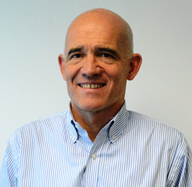
Professor and policy advisor on innovation and industrial development and policy. Currently Professor of Economics at University Roma Tre, Italy, and at United Nations University UNU-MERIT, Maastricht. Policy advisor to governments in Africa, Asia, Europe and Latin America.
Challenge: develop and implement global value chains and cluster development policies to better promote innovation in firms and organizations.
Solution: a systemic approach is required to enhance innovation, and that policy evaluation is a priority.
Faye Duchin(PhD)

Develops economic models to evaluate alternative paths to reduce inequalities and environmental pressures, with trade based on shifting comparative advantages. Scenarios consider technological alternatives, resources, and shifts in demography, consumption patterns, and policies.
Challenge: analysis are often biased from a one-country perspective; mega-projects have int’l and private support, but we have limited ability to learn from projects initiated locally.
Solution: global framework for country-studies should include examining total resource demand and sources and implications for regional jobs and incomes, pollution, and international trade.
Prof. Marco Vivarelli
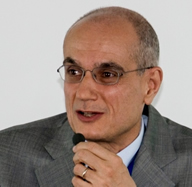
Full Professor of Economics of Innovation. Director of the Department of Economic Policy, Università Cattolicadel Sacro Cuore, Milano, and Professorial Fellow UNU-MERIT, Maastricht.
Challenge: the employment impact of new technologies.
Solution: innovation is labour-friendly when R&D and product innovation are considered, particularly in the high-tech sectors; potentially labour-saving when process innovation is considered (particularly in traditional sectors).
Mehdi Mohammadi(PhD)
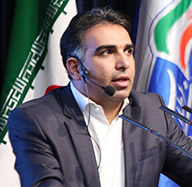
Innovation Policy and Assistant Professor at Faculty of Management, University of Tehran and also, Secretary General of Digital Economy and Smart Technology Development Council at Vice-Presidency for Science and Technology, Iran.
Challenge: the evolution mechanisms of Technological Innovation systems in developing countries: what is the role of government in the formation and growth of emerging technologies?
Solution: STI policies need to be in context with the level of maturity of national technological systems and depend of different factors like size of market, historical path dependencies.
Prof. Roberta Rabellotti
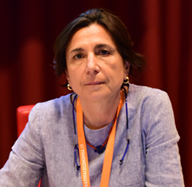
Professor of Economics at the Universitàdi Pavia. Research on development economics, innovation in developing countries, clusters, small enterprises, multinationals and Global Value Chains. Worked with IADB, EC, OECD, UNIDO, ILO, ECLAC-UN, UNCTAD.
Challenge: Global Value Chains interact with Innovation Systems in multiple ways and have implications for innovation capabilities of firms in developing countries.
Solution: Policies aimed at capturing gains from GVC integration include support for firms’ innovation or collaborative innovation involving firms and universities, targeted training programs; and investments in services such as standards and certifications.
Mulu Gebreeyesus (PhD)
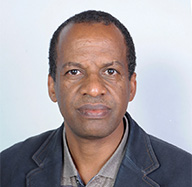
Dedicated Senior Researcher with more than 15 years of working experience, including at the UNU-MERIT in the Netherlands, Dr. Gebreeyesus' research focus has been on innovation, technology and late industrialization and has consulted several international organizations.
Challenge: While tapping into the international knowledge market and joining global value chains are among the major sources of technology upgrading, developing countries face a fast pace of advancing technology and fierce competition from peers in the global market.
Solution: Align STI and Industrial policies to ensure they appropriately identify their niche market in the global economy; upgrade technological capability and develop sectors and industries to produce an increasing range of higher value added and higher quality goods and services.
Michael Gerard Hinchey (PhD)
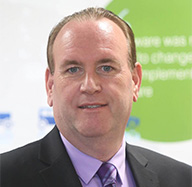
Computer scientist and Head of Department of the Department of Computer Science & Information Systems at University of Limerick. Former Director of the Irish Software Engineering Research Centre at the University of Limerick, Ireland. As former Director of the NASA Software Engineering Laboratory at NASA Goddard Space Flight Center, was the founding editor-in-chief of the NASA journal Innovations in Systems and Software Engineering, launched in 2005.
Challenge: Increasing and improving the use of science and technology in policymaking and implementation as well as in uplifting productive capacities in services sectors and industries, through innovation and application of key digital technologies.
Solution: Improve capabilities and competencies to innovate, develop and customize embedded and self-standing software solutions through better education and training on digital technologies, starting at early school levels, all the way to tertiary education.
Ludovico Alcorta
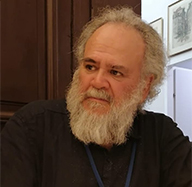
Combines academic, advisory and management expertise with a passionate commitment to sustainable development. Professorial Fellow on "Technology, Innovation and Sustainable Development" at UNU MERIT, United Nation University and School of Business and Economics, University of Maastricht. Advisor to several international organizations and national governments. Former Director of Industrial Policy, Statistics and Strategic Research at the United Nations Industrial Development Organization (UNIDO).
Challenge: providing sound in-depth research and diagnostics to identify key industrial, technology and innovation issues to propose feasible actions and initiatives that address them.
Solution: developing rigorous and implementable industrial and technological development strategies and concrete policy instruments aimed at the structural transformation of nations, regions, and the global economy.
Prof. Fouad Mrad

An experienced engineering professor, innovator, sustainable development champion, researcher, and a solution-creator. Professor Fouad Mrad spent years in the manufacturing industry, university teaching and research, and in the UN regional commission for Western Asia advocating and collaboratively establishing national and institutional policies for harnessing the potential of science, technology and innovation for accelerating the implementation of the SDGs.
Challenge: In most developing countries, large talent pools are nurtured in local universities and research centers. Professors with proven capacity, graduates of world renowned academic centers, tech savvy youth, and accumulation of publicly funded facilities over decades locked behind the gates in disconnected islands distant from the challenges of local societies and economies. The hidden potential represents a missed opportunity for local economic growth, employment, and context based sustainable development.
Solution: The national policies governing higher education and research budgets, along with institutional rules of staff performance assessment and promotion, need to be revised to promote, incentivize and account for researchers and scientists to engage in relevant innovation beyond publications, and connected consulting activities to local society and economy beyond teaching. The revised policies must include institutional governance and systematic process oversight to avoid abuse and assure quality.
Contributions
Contact
STIxNET
UNCTAD/DTL
Palais des Nations
1211 Geneva 10
SWITZERLAND
T.: +41 22 917 5701
E.: sticourses@unctad.org



